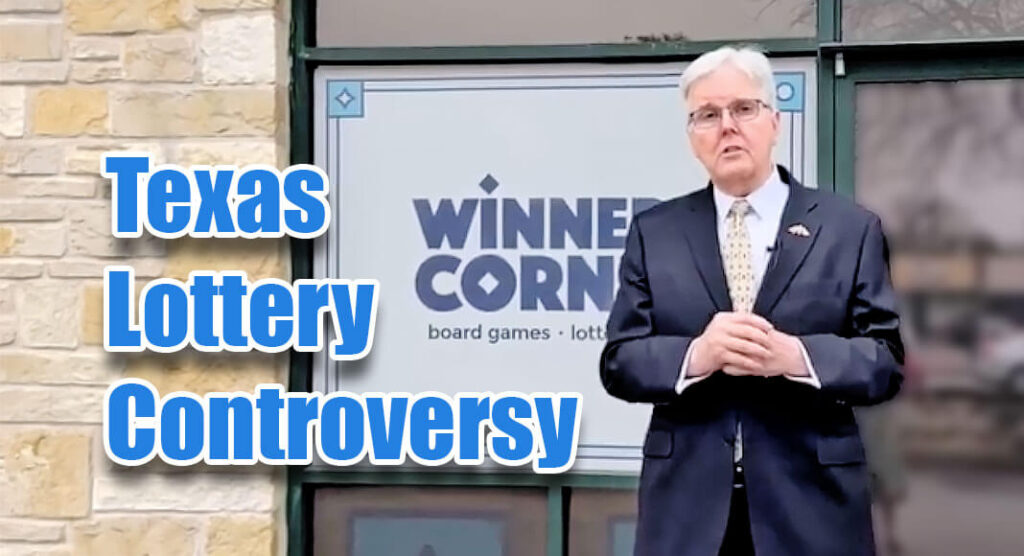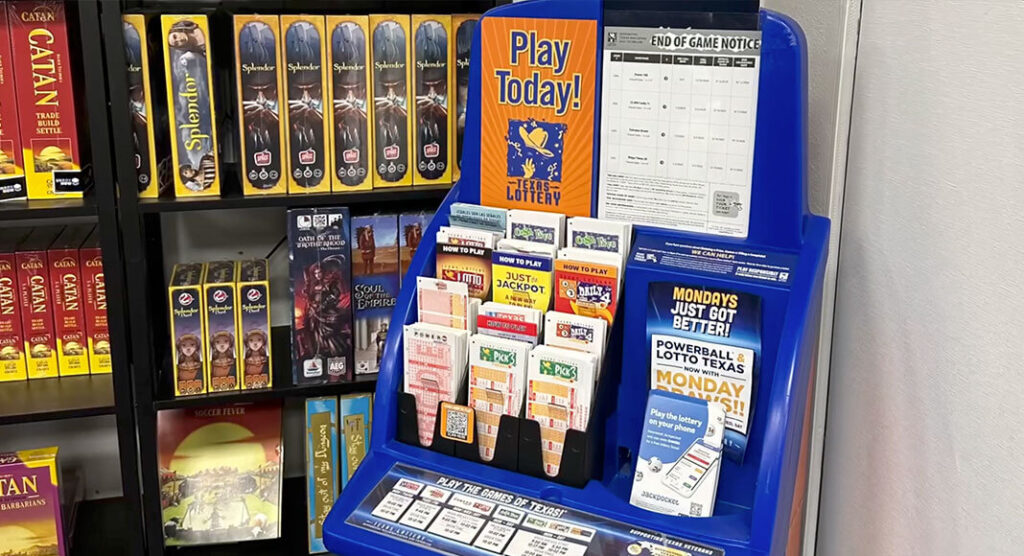
By Roberto Hugo González
On Wednesday, February 19, 2025, Lt. Governor Dan Patrick took to Facebook to raise concerns about the integrity of the Texas Lottery. The discussion centered around an $83 million winning ticket sold in Austin under troubling circumstances. His investigation led him to Winners Corner, the retail establishment that sold the ticket. He noted that Winners Corner is affiliated with Jackpocket, a lottery courier service. This relationship, he argued, presents a conflict of interest that could shake public confidence in the state’s lottery system.
Lt. Governor Patrick visited Winners Corner to see how the operation functioned. “So, this is the location of Winners Corner, where someone won $83 million on a Texas lottery ticket,” he stated during his visit. “And I had a question because Winners Corner is also affiliated with the Courier Service. Who purchased the ticket? It’s Jackpocket, the name of the Courier service. Winner’s Corner is the name of the retail outlet. Both are affiliated or owned by DraftKings.”
Patrick’s concern stemmed from the fact that Winner’s Corner, the entity selling the ticket, is owned by the same company that operates Jackpocket. This service facilitates lottery purchases on behalf of customers. This raises questions about whether certain players might have an advantage that the general public does not. The interaction between Patrick and the store’s manager shed little light on how the ticket was sold, as the manager could not provide details on individual transactions. “They don’t give us individual details,” the manager explained. “They just process tickets here.”

Patrick pressed further, questioning the legality and transparency of the system. “Do you see an issue where the public might lose confidence if the Courier service, somehow, at this one location in the entire state of Texas, sold an $83 million winning ticket and also owns the location that printed the ticket?” he asked an attorney representing the businesses. The attorney acknowledged the concern but maintained that the ticket was purchased legitimately. “They bought the ticket on behalf of the individual that won,” the attorney stated. “That’s just the way it works.”
According to Patrick, the issue is whether this setup aligns with the original intent of the Texas Lottery. “The intent of the lottery law when passed was to create a commercial space selling a range of products, like your typical stop-and-go store. But this only sells games. They sell games and lottery tickets. Do you think that meets the letter of the law or the spirit of the law?” he questioned.
Upon gaining limited access to the back of the store, Patrick noted an unusually high number of lottery terminals. “They wouldn’t let us take any photographs or video or ask anyone any questions. But there were terminal after terminal, after terminal, after terminal—many, many more terminals than you would ever see in the normal place that you buy lottery tickets,” he observed.
Patrick made it clear that his concern was not about illegal activity but about fairness and transparency. “If people are going to have confidence in the lottery, we have to be sure that no one has an advantage,” he stated. “Again, we’re not suggesting anything illegal, but this is not the way the lottery was designed to operate. It was designed to operate by someone coming into a store, giving someone cash, and getting a ticket back—not for machines behind walls and not from a courier service and a retailer all being connected.”
The controversy highlights an ongoing debate over lottery courier services. These services act as middlemen by purchasing lottery tickets on behalf of customers and delivering them digitally or physically. The practice is
legal, but critics argue that it blurs the line between independent retailers and corporate entities, raising concerns about potential conflicts of interest.
Patrick pointed out that the Texas Senate had already attempted to address this issue. “You might say, well, why hasn’t the legislature done something about these courier services and these retail units all being together? Because it just doesn’t feel good. It doesn’t look right. Well, we did last session,” he said. “The Texas Senate, Senator Bob Hall, passed a bill 29 to 2—that’s about as bipartisan as you can get—to ban courier services. We sent it to the House, and it died.”
His remarks indicate that the issue is far from resolved and may become a pivotal topic in the upcoming legislative session. “It’s time we take a closer look at these courier services and retail units, especially when they’re owned by the same company,” he asserted. “Because you deserve to know that when you buy a lottery ticket, you can trust that everything is fair and above board.”
As discussions around the lottery’s future continue, Patrick’s investigation and statements have reignited concerns about the transparency and oversight of lottery sales in Texas. Whether this scrutiny will lead to legislative action remains to be seen, but for now, the integrity of the Texas Lottery remains under the microscope.
















